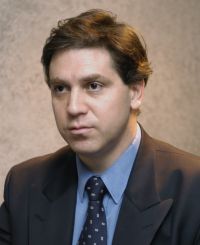
“This may represent the biggest hope in the field of degenerative diseases like ALS,” Prof. Dimitrios Karussis, head of the Hadassah University Medical Center’s Multiple Sclerosis Center, said about the clinical trial just completed at Hadassah where stem cells were used to treat Amyotrophic Lateral Sclerosis (ALS).
Even though this was a trial to determine the safety of the technology, early clinical follow up of the patients demonstrated an improvement in breathing and swallowing ability as well as in muscular power. “I am very excited about the safety results, as well as the indications of efficacy,” Prof. Karussis said. The initial patients who were treated with BrainStorm Cell Therapeutics’ NurOwn™ stem cell technology experienced no significant side effects in this Phase I/II clinical trial. As a result, Hadassah’s ethics and safety committee has now granted BrainStorm approval to proceed with treating additional patients.
NurOwn ™ technology processes adult human stem cells that are present in bone marrow and are capable of self-renewal and differentiation into many other cell types. A progressive neurodegenerative disease, ALS, often referred to as Lou Gehrig’s disease, affects nerve cells in the brain and the spinal cord. With this technology, the bone marrow cells are induced to differentiate into cells capable of releasing neurotrophic factors which can help ALS patients. According to the ALS Association, approximately 5,600 people in the United States are diagnosed with ALS each year and it is estimated that as many as 30,000 Americans may have the disease at any given time.
The study, led by Prof. Karussis, is being conducted in conjunction with a scientific team from BrainStorm.
